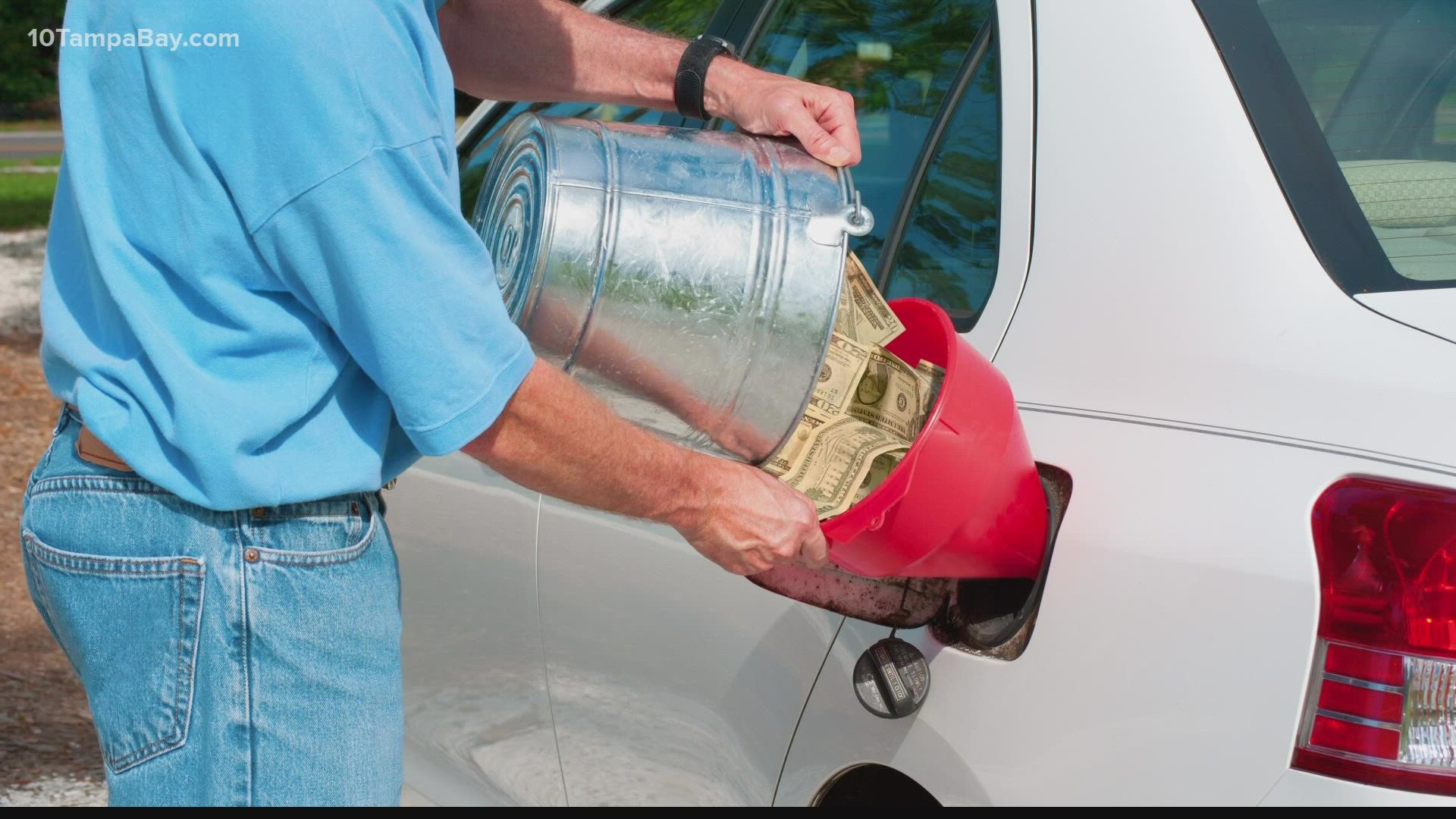ST. PETERSBURG, Fla. — Rising prices at the pump have some questioning if they can switch fuel grades to cut costs the next time they fill up.
The average price for a gallon of gas in Florida is currently $3.31, according to AAA — a $1.23 per gallon increase over this same time last year.
It’s the highest that gas prices in Florida have been since 2014 as crude oil prices continue to climb due to global fuel demand outpacing global production.
THE QUESTION
A VERIFY viewer asked: To save some money, can I downgrade from premium and fill up my car with regular grade gas?
THE SOURCES
- Cars.com
- U.S. Energy Information Administration
- U.S. Department of Energy
- Ford owner's manual
- Patrick De Haan, Gas Buddy petroleum analyst
THE ANSWER
No, you should not downgrade to regular fuel if your vehicle requires a higher octane fuel.
WHAT WE FOUND
Gas grades have different octane ratings – which is essentially the pressure at which the fuel combusts. Octane ratings at a typical gas station range from the standard 87-octane to 91 or higher – usually marketed as ‘premium’ or ‘ultra.’
Most gasoline vehicles are designed to run on 87-octane, according to the U.S. Department of Energy. But others are designed to use higher octane fuel.
When it comes to when you need to be fueling up with premium, some automakers recommend premium while others require it.
“Obviously there's a big difference,” said GasBuddy’s Patrick De Haan.
In vehicles where premium higher octane fuel is recommended, De Haan says it’s perfectly okay to fill up with regular. But you might lose some fuel economy or acceleration performance in the process.
However some luxury, high-performance or turbo-charged vehicles require higher octane fuel.
“Those engines and the computers that run those engines are designed for that octane,” De Haan said. “If you put in a lower octane than is required there could be catastrophic results."
Cars.com says burning regular in an engine designed for premium on a long-term basis “can cause engine knock, and that in turn can damage the pistons, valves or spark plugs” even with modern technology and so-called knock sensors which are designed to help the engine adjust spark timing.
Using regular gas in an engine that requires premium could also void your warranty.
De Haan’s advice?
“I would say follow what the manufacture recommends,” he said. “It's definitely more risky if your car requires premium and you downgrade.”
Conversely, there’s no risk to using premium if your car takes regular.
But there’s also no benefit either, De Haan said.
“You’re literally throwing away money by filling up with it,” he said. “Your car doesn’t know the difference and it is not basically programmed to take advantage of that additional octane.”
To check to make sure you’re using the right kind of gas for your car, you can either check the owner’s manual or there should be a label on the inside of your driver’s side door.

